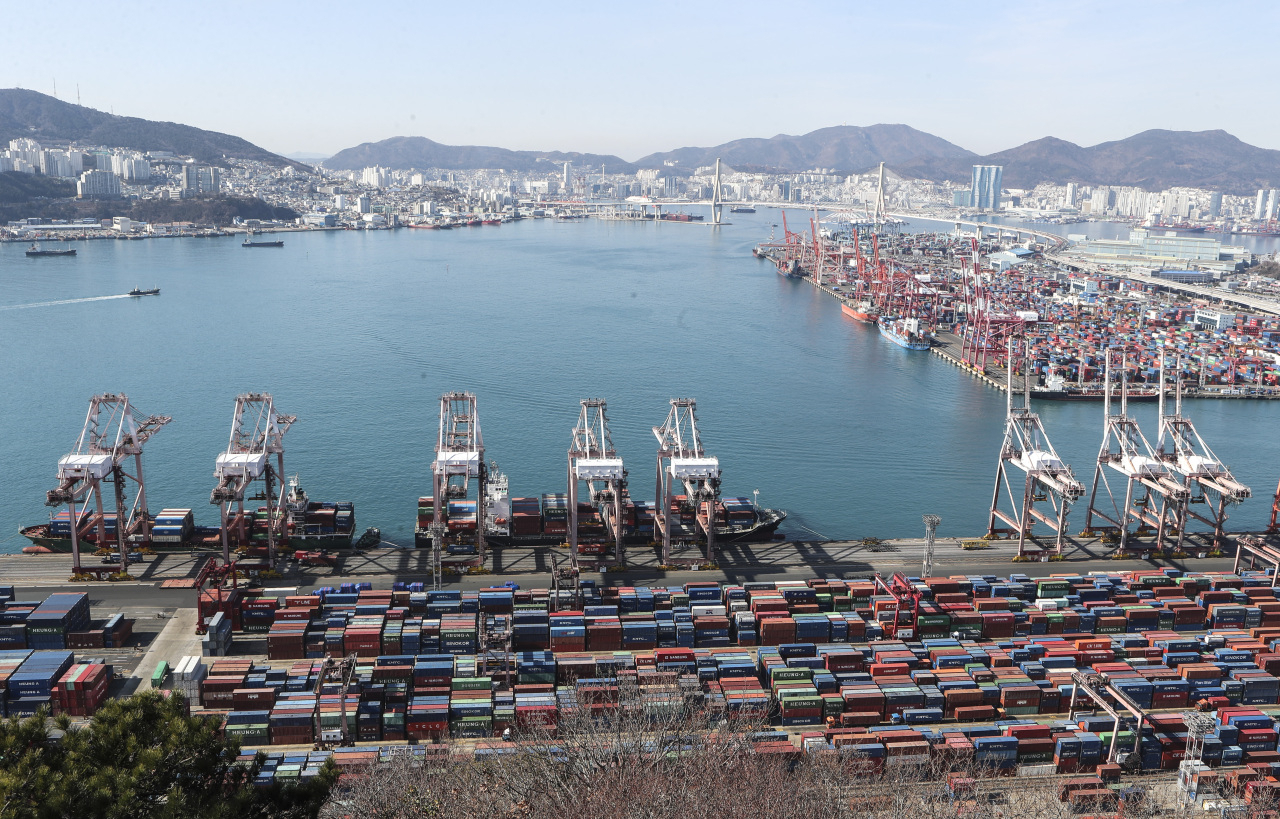 |
Containers are stacked up for outbound shipments at Gamman Pier in Busan on Jan. 21. According to provisional tallies by customs authorities, the country's exports came in at $34.4 billion during the first 20 days of the year, up 22 percent from a year before. (Yonhap) |
South Korea's economic recovery momentum has been losing steam in the face of deteriorating external conditions, such as Russia's war with Ukraine and monetary tightening modes in major economies, a state-run think tank said Thursday.
Led by in-person services, domestic demand improved as outdoor activities have increased on the back of the lifting of COVID-19 virus curbs, the Korea Development Institute (KDI) said in a monthly economic assessment report.
"However, as manufacturing conditions remain stagnant due to weakening external conditions, such as prolonged geopolitical risks and a tightening monetary stance in major countries, the pace of the recovery is restricted," the report said.
Concerns about stagflation, a mix of slowing growth and high inflation, have mounted due to heightened economic uncertainty from the protracted war between Russia and Ukraine and the Federal Reserve's aggressive rate hikes.
Exports rose 5.4 percent on-year in June on robust demand for chips and petroleum products, extending their gains to the 20th month.
But the country suffered a trade deficit for the third straight month in June due to high energy prices.
The chipmaking and other tech sectors, the driving force of Korea's economic growth, saw their production fall due to worsening external conditions, according to the KDI report.
Fears about a global recession have heightened in recent weeks over concerns that the Fed's aggressive monetary tightening could slip the US economy into a recession.
Last month, the finance ministry lowered its 2022 economic growth outlook to 2.6 percent, while sharply raising its inflation forecast to 4.7 percent this year.
South Korea also faces growing inflationary pressure due to soaring fuel costs and a rebound in demand from the pandemic.
The inflation rate jumped 6 percent on-year in June, the fastest rise in nearly 24 years, and picking up from a 5.4 percent spike in May.
High inflation is fanning expectations that the Bank of Korea (BOK) could conduct an unprecedented "big-step" hike of 50 basis points at its July 13 policy meeting. The BOK has raised the policy rate five times by a quarter percentage point each time since August last year.
The BOK forecast Asia's fourth-largest economy to grow 2.7 percent and inflation to spike 4.5 percent this year. (Yonhap)





![[Herald Interview] 'Trump will use tariffs as first line of defense for American manufacturing'](http://res.heraldm.com/phpwas/restmb_idxmake.php?idx=644&simg=/content/image/2024/11/26/20241126050017_0.jpg)
![[Exclusive] Hyundai Mobis eyes closer ties with BYD](http://res.heraldm.com/phpwas/restmb_idxmake.php?idx=644&simg=/content/image/2024/11/25/20241125050044_0.jpg)
